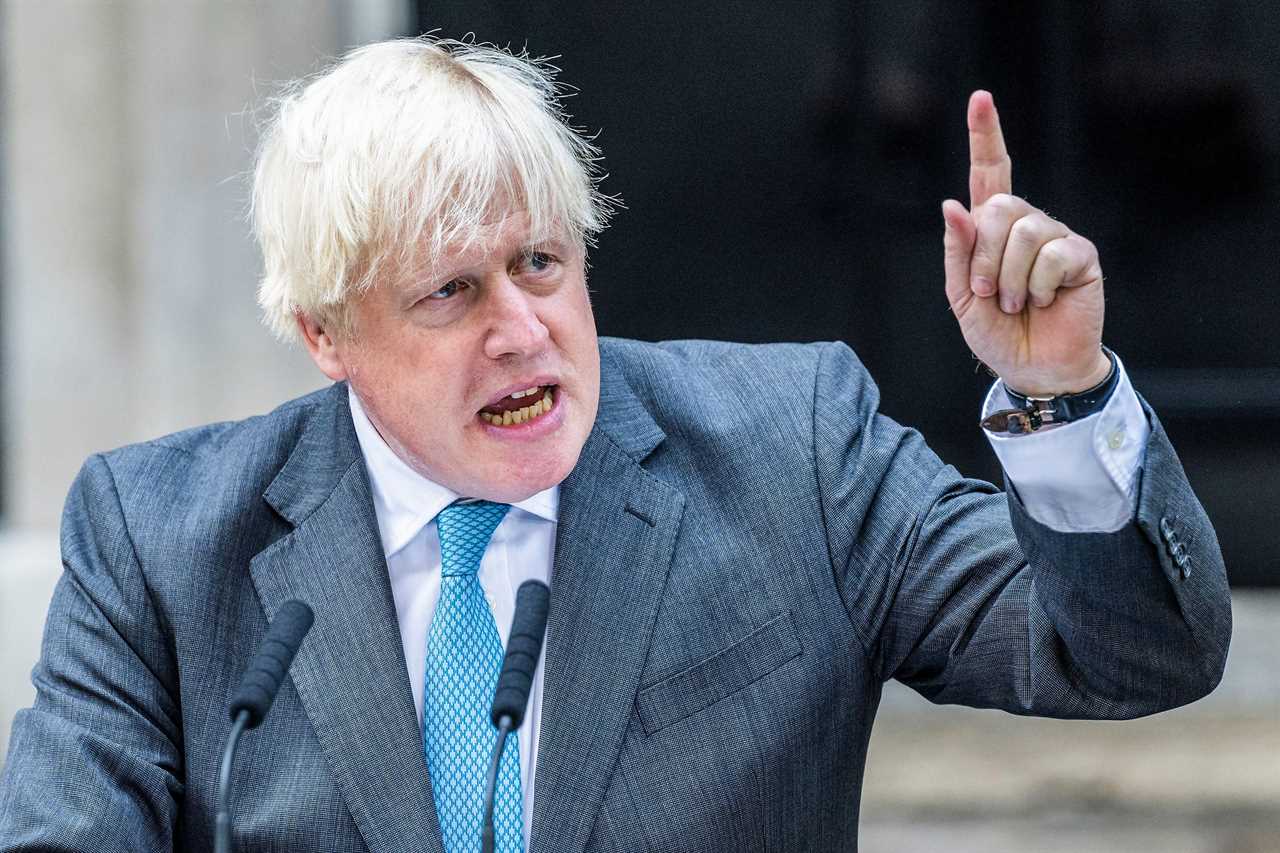Liz Truss has just resigned as Prime Minister, leaving the UK’s political landscape uncertain once again.
Some have questioned whether or not the former Tory leader can come back amid the chaos.

Boris Johnson could return as Prime Minister following Liz Truss’s exit
Boris Johnson resigned as PM on July 7, 2022, kicking off a leadership race in the process.
Ms Truss managed to beat Rishi Sunak to the finishing line, though her tenure ultimately lasted just 44 days, as she confirmed her departure from office on October 20.
Now a new leadership bid is on, with rumours intensifying that Mr Johnson could be taking the top spot again.
Can Boris Johnson come back as Prime Minister?
Yes, there is no legislation stopping Mr Johnson from throwing his hat into the leadership ring again, nor are there any laws stopping him from winning and becoming Prime Minister.
Unlike Presidents in the USA who can only serve two terms, there are no such limits in the UK, meaning the PM can serve for as long as they continue to get votes.
There is also nothing stopping them from trying again after resigning or losing a vote, with Mr Johnson leaving office due to the former.
Mr Johnson has not announced any intentions to return to office.
His tenure lasted three years, after he beat Labour’s Jeremy Corbyn to the role when the Conservatives won the 2019 general election.
Before he left No 10 on September 6, he said that he was “sad to be giving up the best job in the world,” but added that “no one is remotely indispensable” in politics.
Has a Prime Minister returned to office after leaving before?
Yes, this has happened before with a very famous example – Winston Churchill.
He served as PM from 1940 to 1945 before losing the vote to the Labour Party’s Clement Attlee.
However, he won the election in 1951, serving for a further four years until 1955.
If Mr Johnson decides to announce his leadership bid, the only thing in his way would be party support.
What did Liz Truss say about her resignation?
Ms Truss leaves No 10 with a unique distinction, after just 44 days she is now the shortest serving PM in British political history.
Her announcement came at 1.30pm on October 20, 2022, following a last-minute meeting with Chairman of the 1922 Committee, Sir Graham Brady.
In a statement read outside Downing Street, Ms Truss said: “I came into office at a time of great economic and international instability.
“Families and businesses were worried about how to pay their bills.”
Ms Truss added she had ” a mandate to change this”, continuing: “We delivered on energy bills.
” I recognise, though, given the situation, I cannot deliver the mandate on which I was elected by the Conservative Party.
“I have therefore spoken to His Majesty the King to notify him that I am resigning as leader of the Conservative Party.
“This morning, I met the chairman of the 1922 committee, Sir Graham Brady. We’ve agreed that there will be a leadership election to be completed within the next week.”
Ms Truss will remain the UK’s Prime Minister until her successor is chosen.
How quickly will a new Prime Minister be chosen?
Mr Brady said they expect to conclude a leadership election by Friday, October 28.
This would put a new PM in place in time for the 31 October fiscal statement.
Just like Ms Truss’s leadership campaign, Tory members will be voting on who will be the next leader.
However, there could be just one candidate chosen for the role, though no MPs have declared their intention at this stage.
Jeremy Hunt, who recently took over as Chancellor of the Exchequer, ruled out a leadership bid.
He previously lost to Mr Johnson in 2019.
Unless Mr Johnson declares his intentions to run, the polls currently predict Rishi Sunak will take the top spot, 44 days after losing to Mr Truss.






